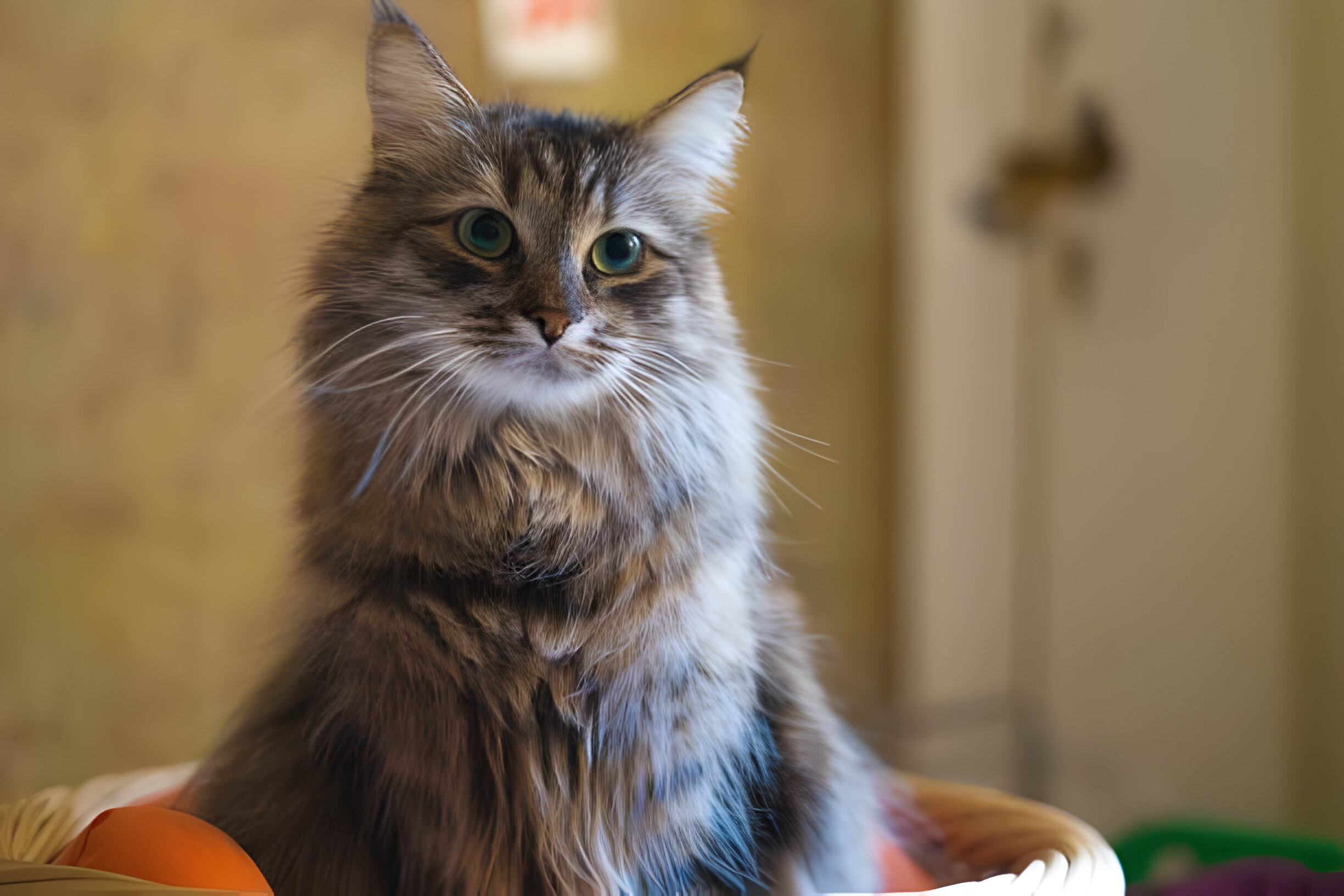A Hypoallergenic Cat: What Is It?
All cats create allergens in their urine, saliva, and fur, but some breeds—referred to as “hypoallergenic cats”—produce fewer of the allergy-causing proteins. Although there is no such thing as a completely hypoallergenic cat, some people who scratch and sneeze around cats may discover that certain breeds work better for them.
12 ‘Hypoallergenic’ Cats
Among people who suffer from allergies, these are some of the most favored breeds of cats. Remember to spend some time with a “hypoallergenic” cat to see how your allergies respond before taking one home.
- Siberian Cat
A well-liked hypoallergenic breed is the Siberian. They produce fewer allergen-causing proteins than many other cats, even though they have long, dense hair. Siberians are not just great allergy-tolerant cats but also friendly, affectionate, and great family pets—that is if you can keep up with their regular grooming needs.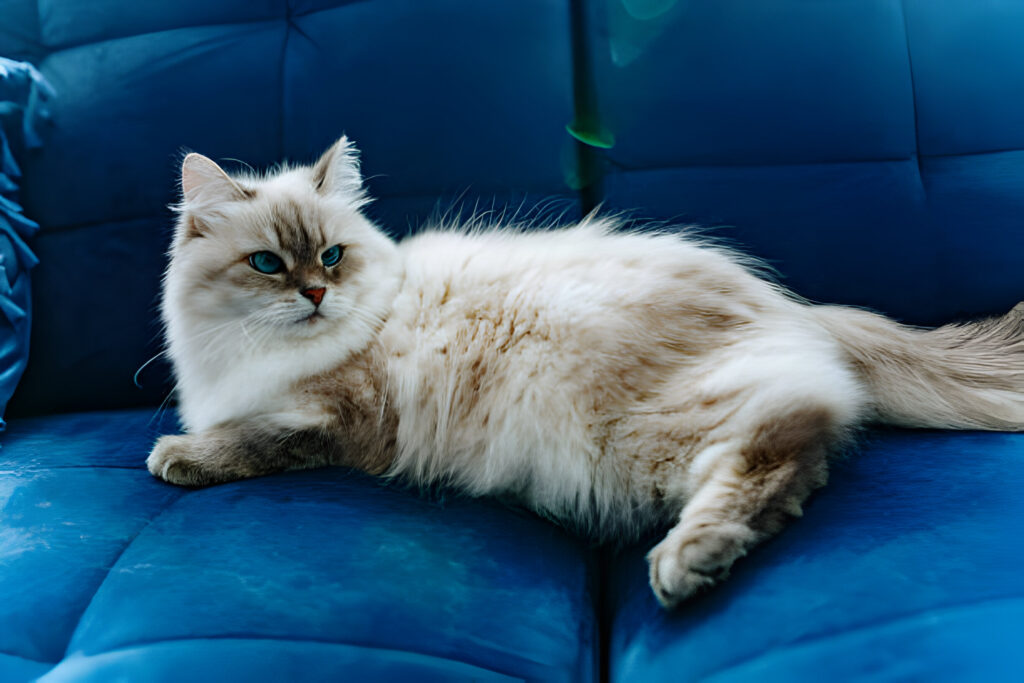
- Siamese Cat
The Siamese cat is another breed of hypoallergenic cat. Although no cat sheds less than others, this blue-eyed beauty has a short coat that sheds sparingly. They therefore don’t generate as many allergies as certain other breeds. Siamese cats, who are well-known for their talkativeness and love for their pet owners, are very beneficial. However, they might be attention-demanding, so families that travel frequently could find them unsuitable. - Bengal Cat
Bengal cats are a special kind of hypoallergenic cats. Their gorgeous short coat, speckled and giving them a decidedly untamed look, is a legacy of their Asian leopard cat ancestors. These cats don’t shed a lot, just like the other fluffy animals on this list. However, because they may be a handful for an unwary pet parent, bright and active Bengals are the subject of laws in certain places, that either prohibit or restrict their ownership. - Russian Blue
Russian Blue cats that are hypoallergenic are well-liked as pets because of their tranquil temperament and loving attitude. These peaceful cats may need some time to warm up to new people because they can be bashful around strangers. Despite their low shedding tendencies, Russian Blue cats nevertheless gain from periodic brushing to maintain their finest appearance.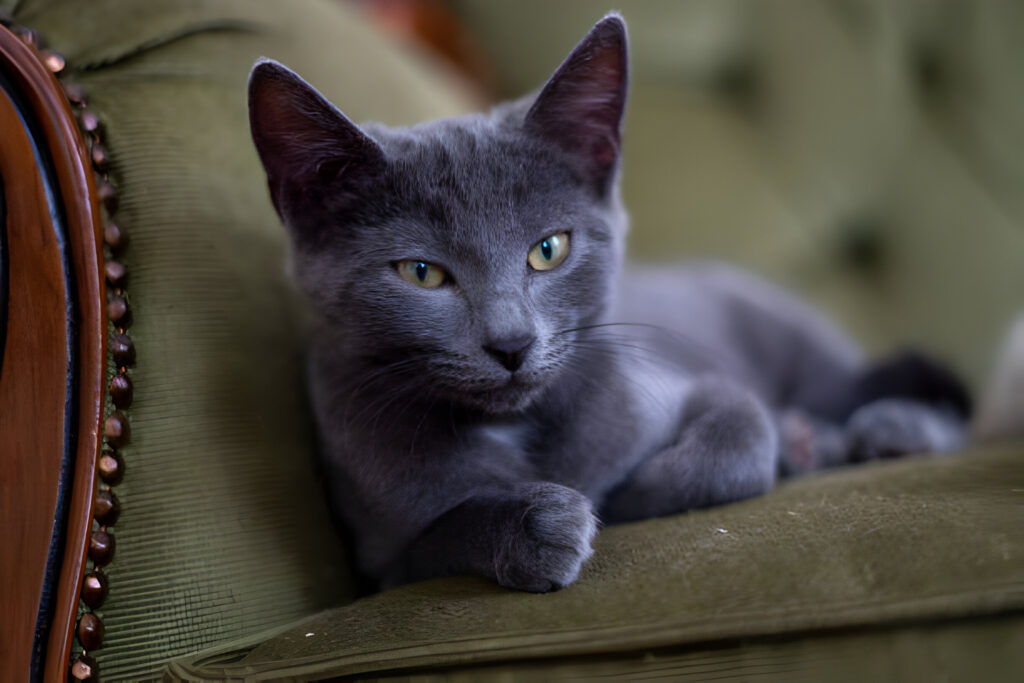
- Sphynx
What sets Sphynx cats apart from other cat breeds is their near total hypoallergenic nature. All Sphynx cats release fewer allergens than many fluffy cat breeds, regardless of whether they are entirely bald or have a light covering of peach fuzz. It doesn’t mean, however, that they don’t need to be groomed; regular maintenance is still necessary to maintain their skin’s clarity and health. - Devon Rex
The Devon Rex is another of the finest cats for allergies because of its short, curly fur. Although this breed is intelligent and affectionate, they need a lot of attention and family time. Therefore, if you travel frequently, the Devon Rex may not be the best breed for you. - Cornish Rex
Like the Devon Rex, Cornish Rex cats are popular pets due to their loving nature and curly coats. They are renowned for their wonderful attention and adeptness with children. A high-energy pet like a Cornish Rex needs lots of activity and exercise, as well as routine brushing to maintain the health of their curly coat. Therefore, they might not be the ideal option if you’re seeking a low-maintenance pet. - Javanese
The Javanese is a different longer-coated, hypoallergenic cat breed. Because of this, even though they are a low-shedding cat, they nevertheless require regular grooming to keep their fur from matting. Pet parents seeking a more independent cat may find these talkative cats to be a touch demanding due to their playful, intelligent, and loveable nature.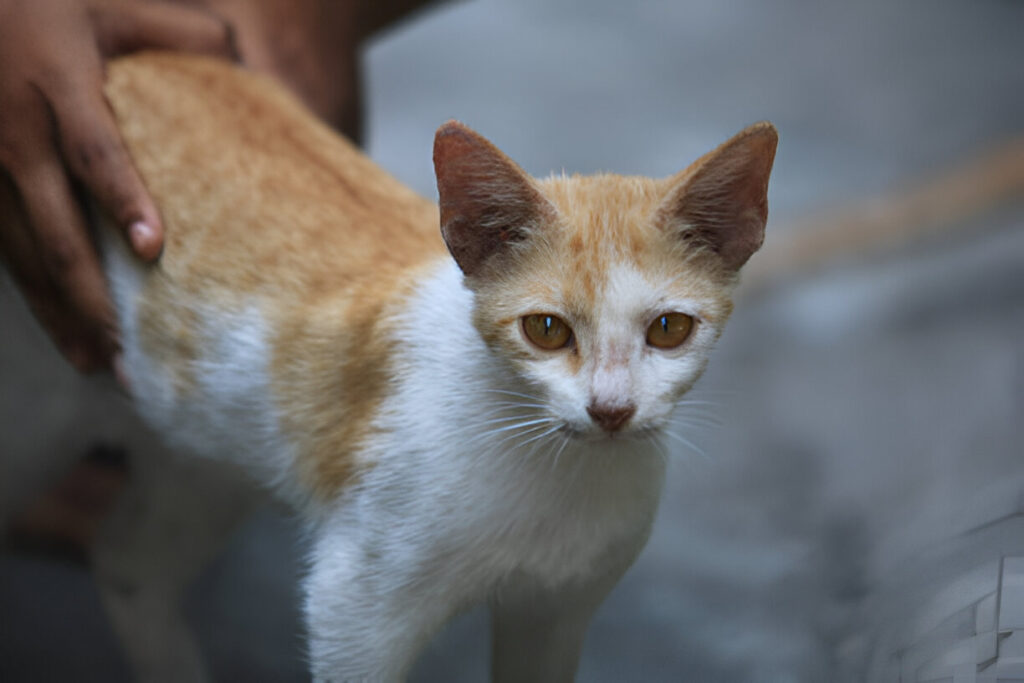
- Balinese
A long-haired breed closely linked to the Siamese is the Balinese. The Balinese is another lovely cat species that is very lovable and suitable for many types of households, particularly those with kids. They can be trained to perform tricks and are intelligent cats as well. - Oriental Shorthair Cats
The appearance of Oriental Shorthair cats is elegant and sleek. Their short coat means that they require less care, which makes them an excellent choice for allergy sufferers. Having an Oriental Shorthair at home allows you to have the ideal balance of cleverness and fun. They are well-known for being active and inquisitive, making them entertaining companions. They also like social interactions and have a unique meow that resembles a cute geese honking. - Burmese
Another hypoallergenic cat breed that doesn’t require a lot of maintenance or shedding is the short-haired Burmese. They require a lot of playing and exercise because they are intelligent, loving, and high-energy. - Tonkinese
The hybrid cat breed known as Tonkinese is descended from Siamese and Burmese cats. These cats are low-shedding and, despite their short coats, may be a suitable option for allergy sufferers. You could expect a lot of interactive play from Tonkinese cats, since they are vibrant and energetic like their parent breeds.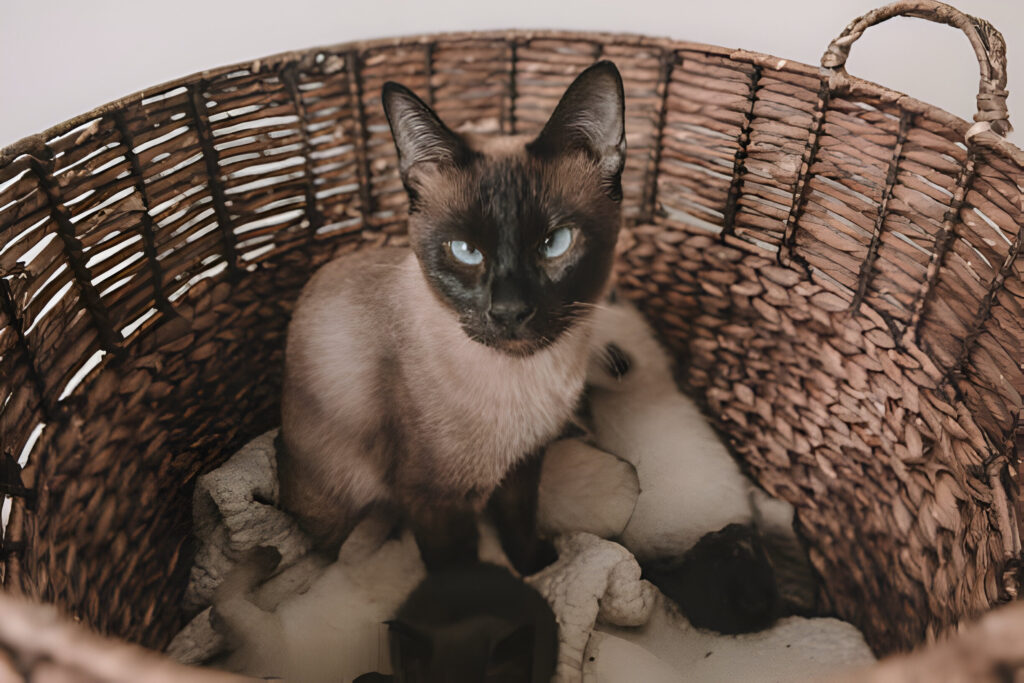
How to Adopt a Cat That Is Hypoallergenic
Conduct Research
You must perform your homework to locate the ideal “hypoallergenic” cat if you’re hunting for one. Before bringing the cat home, it is important to get to know them in person. You can then ascertain whether the breed aggravates your allergies and how you respond to it.
Consult Your Allergy Professional
Before you bring home a new cat, it can be good to see an allergy specialist to assess the severity of your allergies. Additionally, they might suggest medications that can reduce your discomfort.
Keep Your Home Clean
Ordinary cats excrete a lot of hair and dander, which gets stuck to clothes, carpets, and furniture. Not only is this hard to clean, but it can make allergy symptoms worse. Having a hypoallergenic cat makes housekeeping easier because they shed and create less dander. Nevertheless, maintaining the cleanliness of any fur that falls off hypoallergenic cats is as crucial to minimizing sniffles.
Talk With Your Veterinarian
In addition to choosing a “hypoallergenic” cat breed, there’s an innovative cat food line, Purina Pro Plan LIVECLEAR, that’s formulated to significantly reduce the major allergens in the hair, dandruff, and saliva of cats. If you’re not sure if you and your cat will benefit from this diet, your veterinarian can offer you advice.
FAQs About Hypoallergenic Cats
- Are hypoallergenic cats completely allergy-free?
No, a cat that is entirely hypoallergenic does not exist. Hypoallergenic cats produce fewer of the proteins that cause allergic reactions in humans, but they can still cause some allergic responses. It’s essential to spend time with a hypoallergenic cat to see how your allergies respond before bringing one home.
- How can I reduce allergens in my home if I have a hypoallergenic cat?
To reduce allergens in your home, keep your living space clean by regularly vacuuming carpets, upholstery, and curtains. Use air purifiers to filter out allergens, and frequently wash your cat’s bedding and toys. Regular grooming of your cat can also help minimize the amount of dander and fur they shed.
- What makes certain cat breeds hypoallergenic?
Certain cat breeds are considered hypoallergenic because they produce fewer of the allergen-causing proteins found in cat saliva, urine, and fur. Additionally, some breeds have coats that shed less, which reduces the spread of allergens throughout the home.
- Can special diets help reduce cat allergens?
Yes, special diets like Purina Pro Plan LIVECLEAR are formulated to reduce the major allergens in a cat’s hair, dandruff, and saliva. Consult with your veterinarian to determine if such a diet would be beneficial for your cat and help manage your allergy symptoms.
5. Are cats truly hypoallergenic?
No, a cat that is 100% hypoallergenic does not exist. Cats that don’t urinate nevertheless release allergies.
